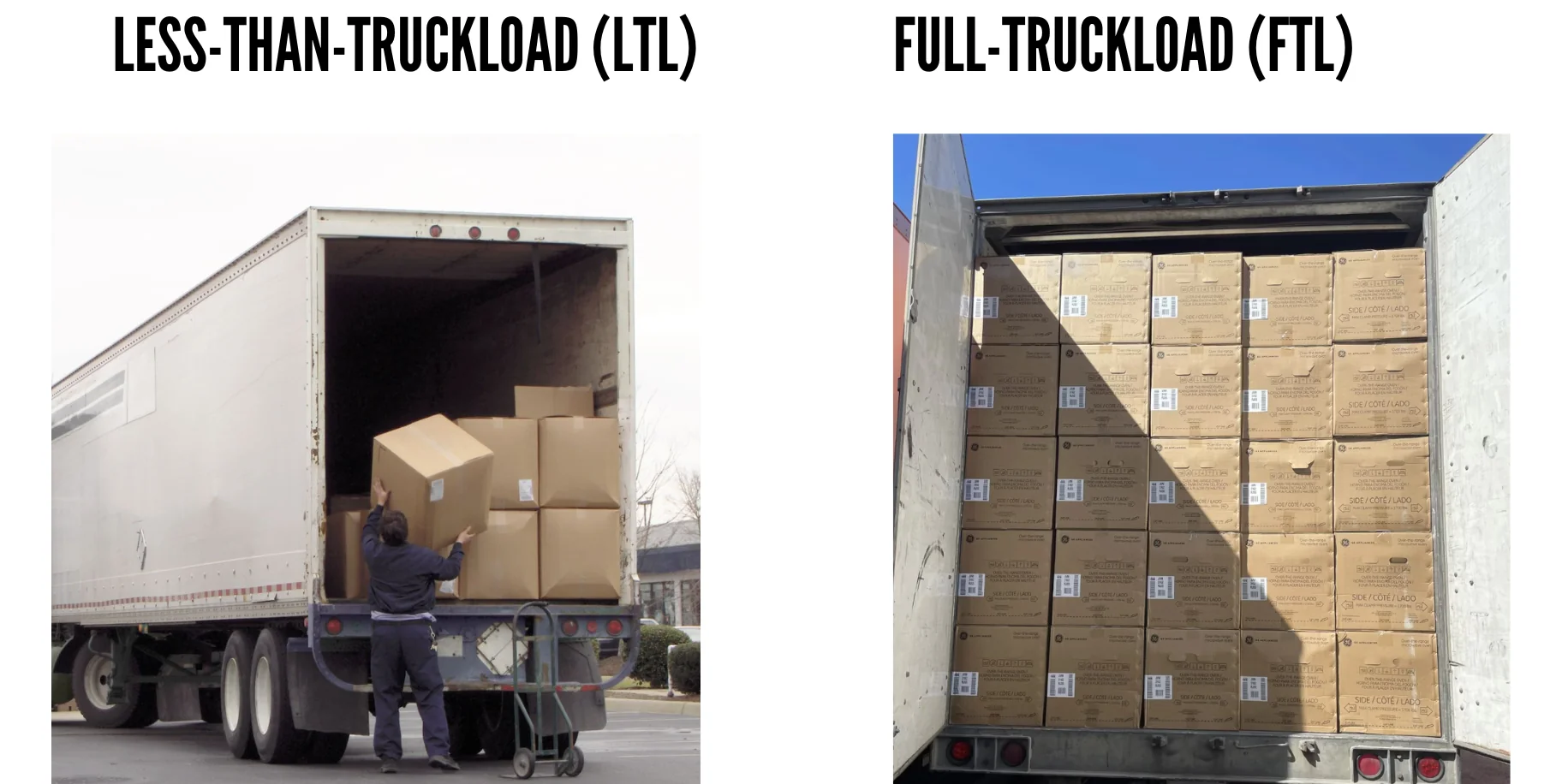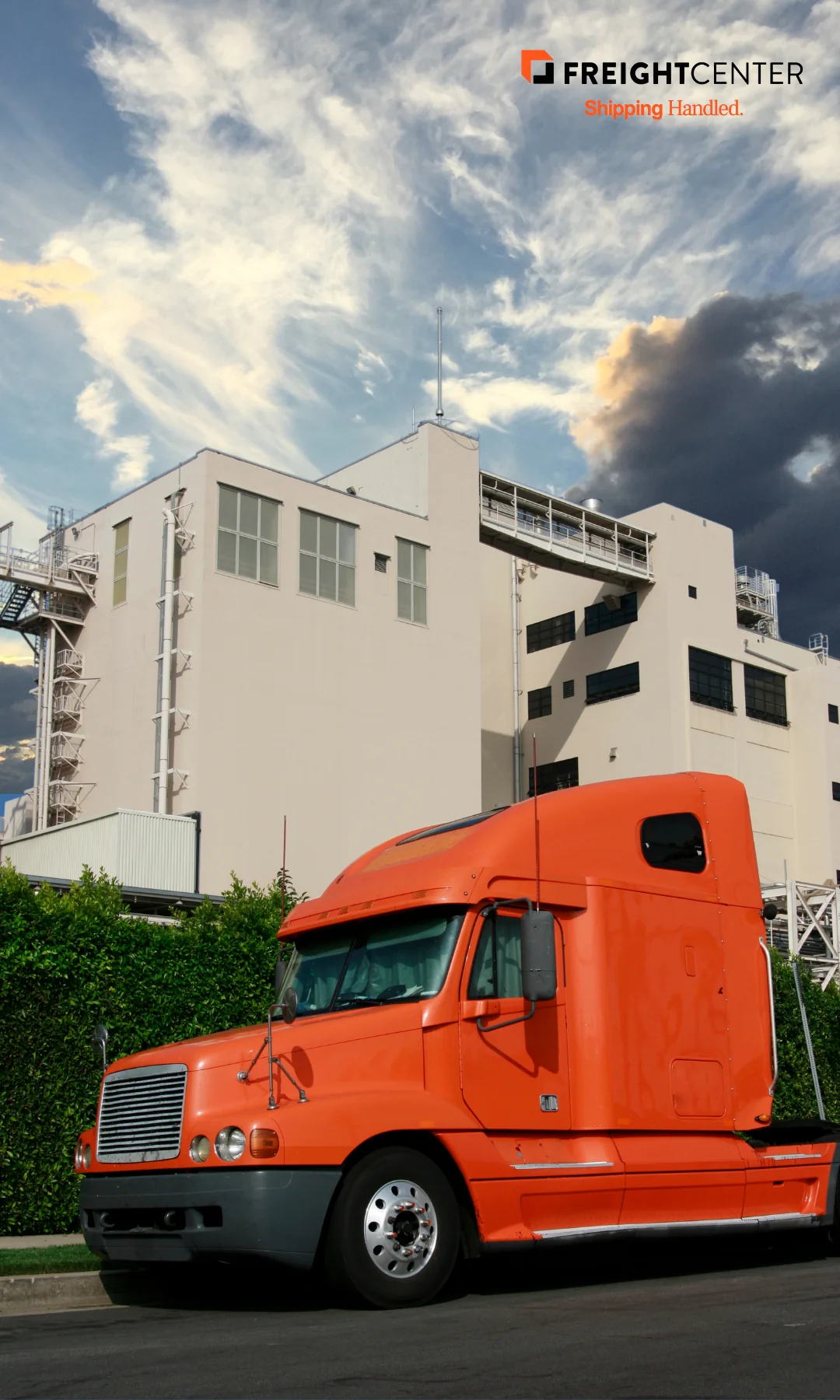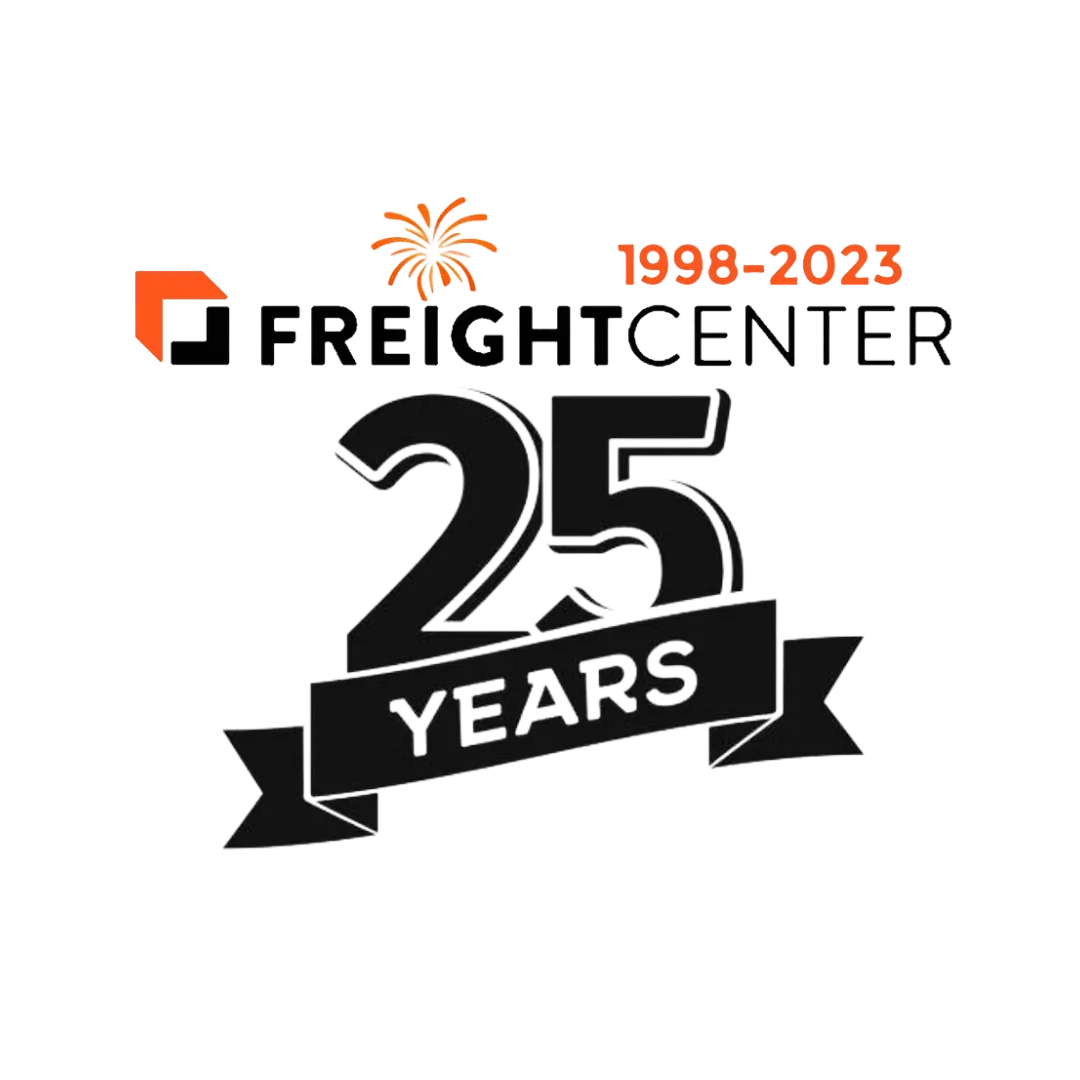
Full Truckload vs Less-Than-Truckload
Understanding the differences between Full Truckload (FTL) and Less-Than-Truckload (LTL) shipping can empower businesses to make informed decisions about their shipping strategies. Explore our comprehensive guide to discover which option best suits your needs.
What Exactly Is Full Truckload vs Less-Than-Truckload?
Full Truckload vs less-than-truckload (LTL) shipping is pretty straightforward to define. If your shipment takes up the entire capacity of a tractor-trailer or you want a dedicated truck just for your shipment, TL shipping is the way to go. If your shipment is too large for a parcel carrier but doesn’t need the entire capacity of one truck, LTL shipping is your preferred choice.
As a rule of thumb, LTL shipping is best for shipments weighing anywhere from 150 to 15,000 pounds. In TL shipping, most ideal shipments weigh over 15,000 pounds, or you have more than 10 pallets to ship simultaneously.
Think of LTL shipping as a rideshare for your freight. It will share space on the truck with other people’s shipments. Think of TL shipping as your heavy freight’s personal vehicle. Here are some visuals for LTL vs FTL

Benefits of Each
There are different benefits to TL and LTL. Here’s the breakdown:
Less-Than-Truckload (LTL)
Less-than-truckload shipping is ideal for small business operators because it’s:
-Cost-efficient – Only pay for the space you need.
-Streamline easier – You can consolidate multiple pieces of freight into one shipment, which saves you time and money.
-Eco-friendly – LTL freight carriers easily fulfill optimal capacity levels, meaning more stuff is moving through transit, using fewer resources and releasing fewer carbon emissions.
Full-Truckload (FTL)
-Quicker – Because your shipment has its own dedicated trailer, there’s generally less transit time.
-Negotiating – Rates are independent, meaning shippers can bargain for lower rates.
-Fewer risks – TL freight is handled less, meaning there’s less chance of lost or damaged shipments.
Both LTL and TL shipping have their perks. But deciding which will work best for your business depends on your needs.
A third-party logistics company (3PL) like FreightCenter can help you decide which shipping service is right. We have a large network of LTL and TL freight carriers, and we leverage these networks to deliver the most competitive rates to our customers. We can find the best rates, the right carrier, and optimal lane solutions that fulfill all your shipping demands.
Awards and Endorsements
- 2021, 2017 & 2016 Food Logistics’ Top Green Providers
- 2021 & 2018 Supply & Demand Chain Executives’ Pros to Know: Matthew Brosious
- 2020 & 2019 Top Food Logistics’ 3PL & Cold Storage Provider Award
- 2020 & 2019 Business Observer’s Top 500 Companies on the Gulf Coast
- 2020 & 2019 Business Observer’s Top 500 Companies on the Gulf Coast
- 2020 & 2017 Food Logistics’ Champions: Rock Stars of the Supply Chain
- 2020 Best of Palm Harbor Awards for Local Businesses
- 2017 Green Supply Chain Award from Supply & Demand Chain Executive
- 2017 Tampa Bay Business Journal Heroes at Work
- 2016, 2015, & 2012 Food Logistics Top 100 Software and Technology Providers
- 2013 Tampa Bay Business 100 by Tampa Bay Business Journal
- 2013 Top 100 Great Supply Chain Partners by SupplyChainBrain
- 2012 TIA Samaritan Award Honorable Mention
- 2012, 2011 & 2010 TBBJ Fast 50 Recipient
Pricing for Truckload vs. Less-Than-Truckload
The biggest difference between full truckload and less-than-truckload shipping is how they determine the shipping cost for each service. The typical shipment characteristics come into play for both services: weight, location, and additional shipping services. However, TL and LTL still have major differences.
For LTL shipments, rates are regulated by the National Motor Freight Traffic Association (NMFTA). They issue National Motor Freight Classification (NMFC) codes to simplify carriers’ pricing process and ensure customers receive unbiased pricing. Numerous factors affect LTL freight rates.
Full truckload shipping doesn’t have an association regulating pricing standards. Rather, the market sets the price. The use of freight shipping services varies from industry to industry throughout the year. In turn, this can affect supply and demand. This means that carriers may have issues filling their trucks or they may have issues fulfilling shipping requests.
This is the capacity at which carriers can or cannot fulfill shipments. Capacity will cause prices to fluctuate, which includes the cost of fuel. That is why FreightCenter is crucial for you to be able to review the data, making the process easier for you.

To create value for our customers by delivering customized shipping solutions that meet their unique needs and to fulfill shipping demands from simple to complex with expertise, guidance and ingenuity.
Partial truckload shipping, often referred to as "PTL," is a cost-effective option for shipments that occupy more space than a traditional less-than-truckload (LTL) shipment but don't require a full truckload.
Less than truckload (LTL) shipping is a smart logistics solution for businesses with smaller shipments. It combines multiple smaller shipments into a single truckload, optimizing space and reducing costs. LTL shipping offers affordability and efficiency while ensuring timely delivery, making it an ideal choice for companies looking to save on transportation expenses without compromising on service quality.
Specialized services in freight shipping cater to unique requirements such as temperature-sensitive cargo, oversized loads, or hazardous materials. These services provide tailored solutions to ensure the safe and efficient transportation of goods that may require special handling, equipment, or expertise.
Full truckload (FTL) shipping involves booking an entire truck to transport a single shipment, making it ideal for large quantities of goods that fill up the entire truck space. With FTL, shippers benefit from faster transit times, reduced handling, and increased security since their cargo is the sole occupant of the truck.

Why Choose FreightCenter?
At FreightCenter, we understand that selecting the right shipping partner is crucial for success. Here’s why choosing FreightCenter for your shipping needs is the smart choice:
- Expertise and Experience: With years of reliability and experience in the freight industry, FreightCenter has the knowledge and expertise to handle all your shipping requirements efficiently.
- Industry-Leading Carrier Network: Our extensive network of reputable carriers ensures that your shipments are transported safely and efficiently to their destination, wherever they may be.
- Wide Range of Services: Whether you need Full Truckload or Less-Than-Truckload shipping, FreightCenter offers a comprehensive range of services to meet your unique shipping needs.
- Competitive Rates: We offer competitive rates and transparent pricing, ensuring you get the best value for your shipping budget.
- Exceptional Customer Service: Our dedicated team of shipping experts is available to assist you every step of the way, providing personalized support and guidance to ensure a smooth shipping experience.
- Flexibility and Customization: At FreightCenter, we understand that every business is unique, so we offer flexible shipping solutions tailored to your specific requirements. Get started today and discover why we’re the preferred choice for businesses of all sizes.
We provide competitive freight shipping prices and an all-inclusive, easy-to-use shipping experience for our customers. Exceeding our customers’ expectations results in thousands of satisfied customer reviews and repeat business. We believe in the power of our customer relationships. Check out FreightCenter reviews from real customers, and learn what they have to say about their freight shipping experience!
Full Truckload vs Less-Than-Truckload FAQs
Q. What is Full Truckload (FTL) shipping, and how does it differ from Less-Than-Truckload (LTL) shipping?
A. Full Truckload (FTL) shipping involves the dedicated use of an entire truck for a single shipment, typically suited for larger loads that fill the whole truck. On the other hand, less-than-truckload (LTL) shipping involves combining multiple shipments from different customers into a single truck, with each load occupying only a portion of the trailer.
Q. When should I choose Full Truckload over Less-Than-Truckload for my shipments?
A. Full Truckload is usually more cost-effective for large shipments that require the entire truck space and have consistent pickup and delivery times. Less-Than-Truckload is preferable for smaller shipments, as it offers more flexibility and cost savings for partial loads.
Q. What factors should I consider when deciding between Full Truckload and Less-Than-Truckload shipping options?
A. Factors to consider include shipment size and weight, transit time requirements, budget constraints, packaging needs, and the handling and care required for the shipped goods.
Q. How does pricing vary between Full Truckload and Less-Than-Truckload shipments?
A. Full Truckload shipments are typically priced based on the distance traveled and the shipment size, while Less-Than-Truckload shipments are priced based on the space occupied by the shipment and the distance traveled.
Q. What are the typical transit times for Full Truckload and Less-Than-Truckload shipments?
A. Full Truckload shipments often have shorter transit times since they go directly from the point of origin to the destination without stops. Less-than-truckload shipments may have longer transit times due to multiple stops for consolidation and delivery along the route.
Q. How does cargo handling differ between Full Truckload and Less-Than-Truckload shipments?
A. Full Truckload shipments typically involve less handling and fewer opportunities for damage since the cargo remains on the same truck throughout the journey. Less-than-truckload shipments may require more handling as goods are loaded and unloaded at various stops along the route.
Q. Can I switch between Full Truckload and Less-Than-Truckload shipping methods for my shipments, and if so, how?
A. Yes, businesses can switch between Full Truckload and Less-Than-Truckload shipping methods based on their evolving needs. It’s crucial to work with a logistics provider or freight broker who can help assess each shipment’s requirements and recommend the most suitable shipping method accordingly.
FreightCenter's Reassurance

Industry Pioneers
25 Years of Proven Expertise and commitment to the freight industry.

Global Reach
Extensive worldwide reach in providing international freight services.
Freight Fast-Trackers
Get text alerts for updates on your shipments with FreightCenter.

